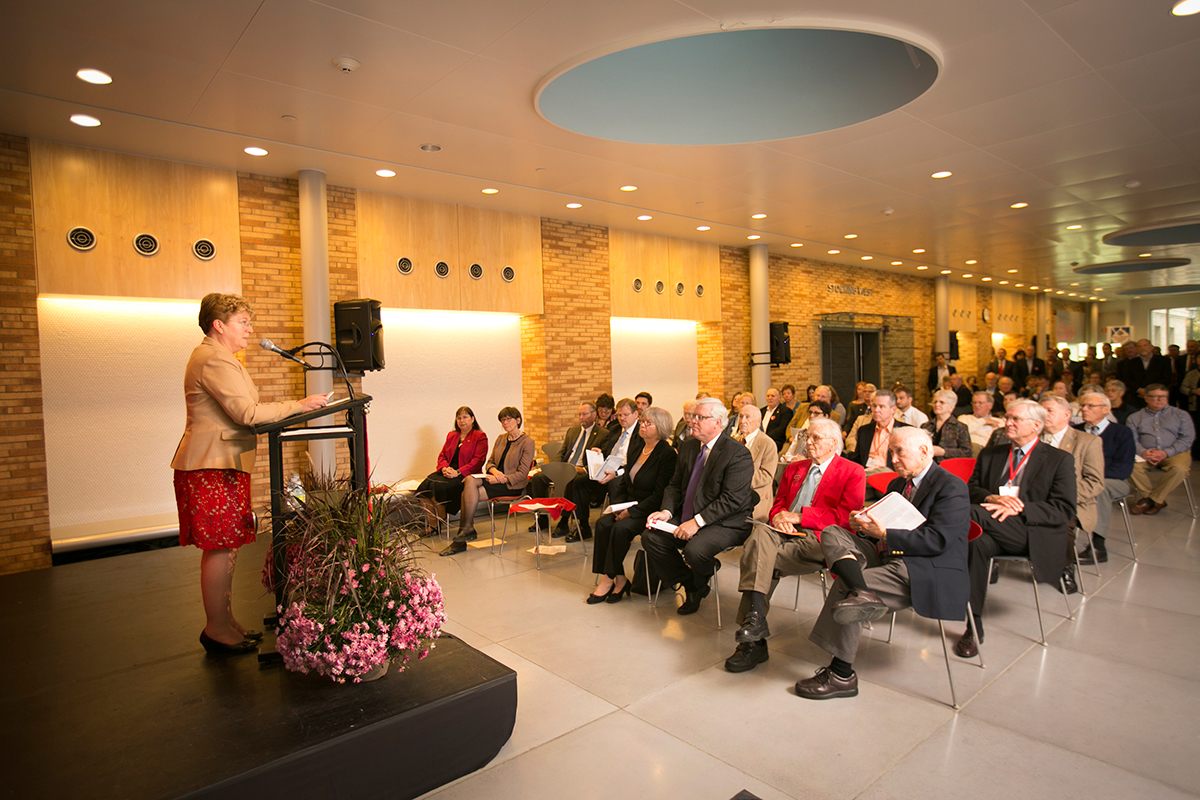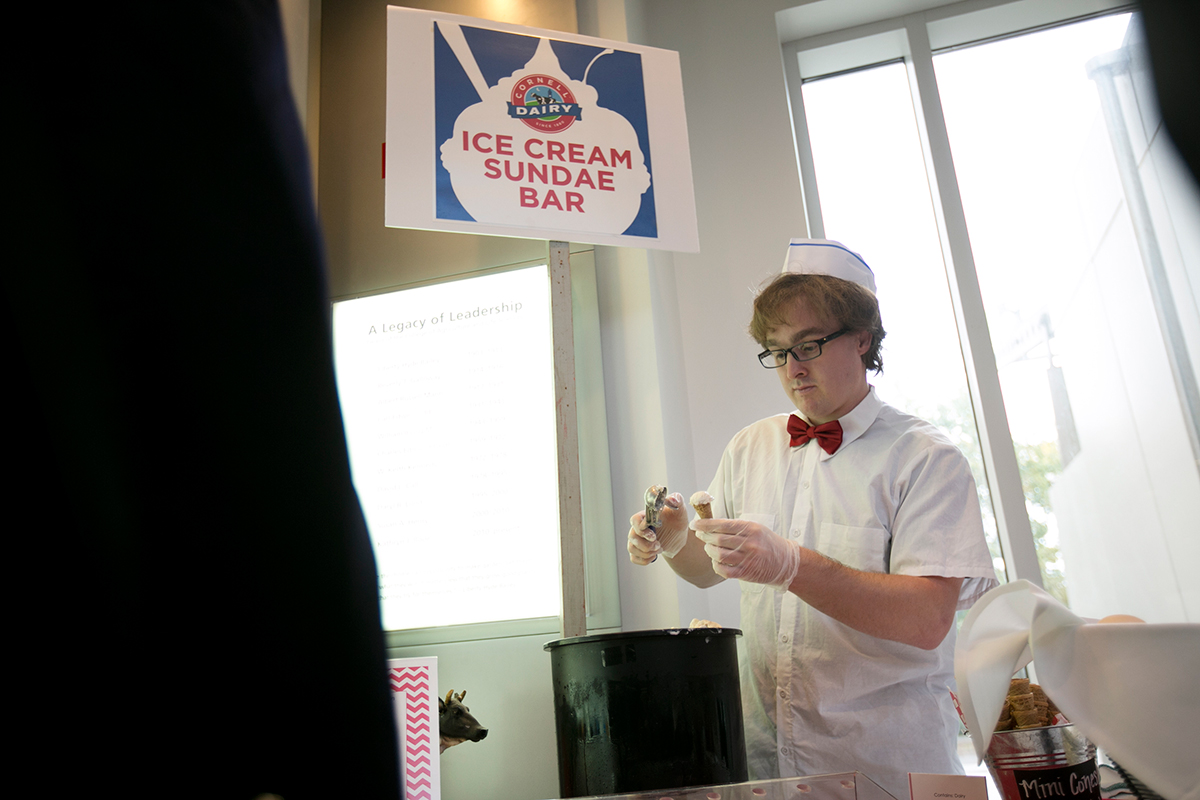Food sciences feted at Stocking Hall dedication
By Matt Hayes


Following a four-year project to modernize facilities at Stocking Hall, the Department of Food Science toasted its freshly renovated home with milk, cider, ice cream and New York wine – all agricultural products its research has helped.
The Oct. 22 ceremony officially introduced the state-of-the art building, culminating a project supported by $105 million from the State University Construction Fund along with alumni and corporate donations and Cornell funds. The project – which broke ground in 2011 – modernized classrooms and installed cutting-edge research and teaching laboratories in a building constructed in 1923.
Kathryn J. Boor, dean of the College of Agriculture and Life Sciences (CALS), said the refurbished facilities will pay dividends for generations as Cornell continues its role as a global leader in food safety and innovation.
“This renovated Stocking Hall represents an extraordinary investment by New York state and Cornell University in the future of research, teaching and extension support for our state’s food and beverage industries,” Boor said to more than 200 honorees, faculty and stakeholders at the ceremony.
Richard Ball, commissioner of the New York State Department of Agriculture and Markets, said growing the agricultural sector is critical to the success of the New York economy, especially upstate. At Cornell, he said he sees the partnership and commitment needed to pass along the knowledge required to make the agricultural industry thrive in the state.
New and expanded facilities for students include a wine library – a collection of reference wines used in teaching – and a student winery. The winery offers students the opportunity to learn the entire production of wines, from harvest to bottling, using classic and new production and analytical technologies.
The glass-fronted dairy plant has expanded Cornell’s role in training dairy and food inspectors from the New York Department of Agriculture and Markets, and a pilot facility has forged collaboration with public and private enterprise for food and dairy entrepreneurs to develop and test new products prior to market.
“The laboratories enable us to train the next generation of leaders and innovators in the food and dairy industries, and to conduct the path-breaking scientific work that will generate continuing improvement in the safety, quality, nutritional value and availability of our food supply,” Boor said.
When Boor first interviewed for her Cornell faculty position in 1993, she was told a Stocking Hall renovation was “right around the corner.”
Now as dean, she said she has witnessed the entire process for an upgrade of that scale. Boor applauded the work of former CALS Dean Susan Henry, who in 2006 tasked food sciences with formulating a plan to improve the building’s teaching, research and training capacities.
Olga Padilla-Zakour, professor of food processing and department chair, said the vision demonstrated by the deans and stakeholders benefits students through modernized equipment and teaching space.
“We take great pride in educating our students to be the next generation of leaders in food science, and now we finally have the facilities that match the excellent quality of our programs,” Padilla-Zakour said.
Judy Appleton, vice provost and the Alfred H. Caspary Professor of Immunology in the Baker Institute for Animal Health, said Cornell students will get the tools and knowledge they need to create the next-generation of products: “Many of these young people will be the food innovators of tomorrow,” she said.
Teaching improvements include the 124-seat PepsiCo Auditorium, in which students can electronically register responses to their sensory perceptions and see the data analyzed in real time.
Alexander Cartwright, provost and executive vice chancellor of the State University of New York, called Stocking Hall a landmark for CALS and central to Cornell’s land-grant mission, which calls for the creation and dissemination of knowledge to improve lives.
“Stocking Hall is a centerpiece for the delivery of that mission,” he said. “Simply put, the work done here is vitally important to the state and to the health of its citizens. The work done here is an exemplar for the nation.”
Matt Hayes is managing editor and social media officer for the College of Agriculture and Life Sciences.
Media Contact
Get Cornell news delivered right to your inbox.
Subscribe